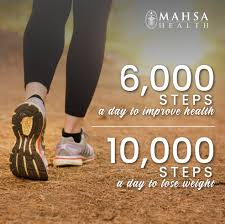
There are many unexpected benefits of weight loss, from improved mood to improved self-esteem. There are also financial benefits, depending on how much weight you lose. These are just a few of the many financial benefits. Keeping in mind that weight loss can be expensive, it is important to understand all the financial implications. These benefits are often more important than the negative aspects. It is possible to determine whether it is worth your time to lose weight by understanding the financial implications.
Improves mood
There are many benefits to losing weight. However, there are also some drawbacks to western-style eating. The West-style diet is high in processed foods, low in fruits and veggies, and associated with poor mood. Studies have also shown a lower mood when eating high-carbohydrate and high glycemic load foods. Mediterranean-style food is rich in vegetables and fruits, as well as nuts and whole grains. It also has low levels of fat and carbohydrates.
Increase self-esteem
Regular exercise and a healthy diet will help you lose weight. Regular exercise improves mood and boosts brain feel-good chemicals. Many anti-depressant drugs target these neurotransmitters. Regular exercise can boost self-esteem, too. How do you boost your self-esteem naturally? These are five ways you can boost your self-esteem. And don't forget to reward yourself for your efforts.

Reduced risk of developing chronic disease
The federal government plays many roles in fighting diet-related chronic illnesses. About half of the country's population suffers from diet-related chronic illnesses. They are a leading cause of death and disability. However, they can be prevented by making dietary adjustments. The government has carried out more than 200 research and initiatives to address the issue. These findings were not consistent. Additionally, gaps exist in important scientific research. This could make these efforts more efficient if agencies collaborate more.
Increases insulin sensitivity
Over the years, people have known the truth that eating high amounts of carbohydrates causes blood sugar levels in the body to spike. This places pressure on the liver to eliminate excess sugar from the bloodstream. There are several ways you can increase insulin sensitivities, such as eating smaller amounts of carbs and limiting your intake of saturated fat. It is also possible to eat foods with a low Glycemic Index, which release sugar slowly into the bloodstream, giving insulin a longer time to do its job.
Blood pressure can be reduced
Exercise can have many health benefits including lowering blood pressure. Research shows that one pound of weight loss can drop blood pressure by five to 20 points depending upon the body mass. Exercising can also lower bloodpressure, since it can reduce blood vessel stiffness. These effects are most evident during and immediately following exercise. Exercising also improves overall fitness. Although it is not as dramatic as weight loss, it can help prevent stroke and heart disease.
Heart health is improved
Weight loss can actually be good for your heart health. Extra weight can make your heart work harder and put extra stress on it. This can eventually lead to heart disease. To find out how losing weight will improve your heart, follow these tips. Read on to learn more about the benefits of losing weight for your heart. Listed below are eight tips to follow to improve your heart health.

Diabetes risk is reduced
The National Diabetes Prevention program, which focuses primarily on lifestyle changes to lower the risk of diabetes, suggests that you can lose 5-7 percent of your bodyweight and increase your exercise by 150 minutes per week to significantly lower your chance of developing type 2. The study participants were a third less likely to develop type 2 diabetes after ten-years. Moreover, it can lower your risk of heart disease and reverse the diagnosis of prediabetes. Although these changes sound simple, they can be challenging to implement.
FAQ
Does intermittent fasting affect my sleep?
Intermittent fasting can affect your sleep. You may notice an increase in hunger hormones if you skip meals. You might wake up every night as a result.
Experts recommend skipping breakfast. Experts recommend having a light snack before going to bed.
If you still wake up hungry after this snack, you can consume a small meal just before going to bed.
Be careful not to overeat. If you do, you will gain weight rather than losing it.
What foods are good for me to lose weight quickly?
By eating less calories, you can lose weight quicker. Two ways to achieve this are:
-
Reduce the calories you eat each day.
-
Through physical activity, you can increase the amount of calories that you burn.
It's easy to reduce how many calories you consume. After all, we're bombarded with calorie-laden fast food options everywhere we turn. Here are some foods that can help you lose those extra pounds.
-
Beans are rich sources of fiber, protein, and other nutrients. Beans are low in fat and therefore a great choice for those who are trying to cut down on their caloric intake.
-
Oatmeal has low calories, but high levels of nutrients such as magnesium and potassium. Oatmeal is lower in sugar than other cereals.
-
Eggs are rich in protein and cholesterol. Consuming eggs at least once a week can increase your metabolism and help you burn more calories.
-
Whole grain bread can reduce hunger pangs, so you might feel fuller for longer.
-
Dark chocolate is high in antioxidants, flavonoids and other substances that have been linked with lower blood pressure and better heart health.
-
Cottage cheese is high in calcium, which helps to build strong bones. Cottage cheese is also a good source for vitamin D which helps boost immunity.
-
Salmon is high in omega-3 fatty oils, which are good for brain development and heart health.
-
Green tea is chock-full with catechins. These compounds fight cancer and boost metabolism.
-
Broccoli has a lot of folic, which can lower homocysteine in the blood. Homocysteine levels that are high have been linked to increased risks of heart disease and stroke.
-
Yogurt is a wonderful way to get probiotics into your diet, without having to consume a lot of added sugars. Probiotics are important for your digestive health.
-
Berries are delicious and nutritious snacks. Blueberries (strawberries), blackberries; raspberries and cranberries all provide excellent sources of vitamins.
-
Avocados are high in healthy fats. A half avocado provides 80 calories with plenty of fiber, potassium, and filling fiber.
-
Nuts can be enjoyed as a snack, but they are also rich in protein. Nuts include cashews (almonds), hazelnuts (pecans), walnuts, walnuts, and pistachios.
-
Sweet potatoes are another starchy vegetable that's packed with beta carotene, which makes your skin glow. The orange sweet potato variety has a higher level of beta-carotene than regular sweet potato varieties.
How Much Exercise is Required to Lose Weight?
Many factors influence how much exercise is needed to lose weight, such as age, gender, body size, and weight. However, generally speaking, most people need at least 30 minutes of moderate physical activity five days per week.
The American College of Sports Medicine recommends 150-minutes of moderately intense aerobic activity every week. It should be spread over three separate days.
You can lose 10 pounds by doing 300 minutes of moderate-intensity exercises each week, for example. This includes activities such as brisk walking, swimming laps, biking, dancing, playing tennis, golfing, hiking, jogging, running, and other similar activities.
For those just starting out, you might consider 20 minutes of vigorous activity every other week. This could be lifting weights, sprinting, jumping rope, and fast walking.
Aerobic exercise also helps burn calories and build muscle mass. Muscles can burn more calories that fat. Building muscle and losing weight can help you reach your goals faster.
Statistics
- Another study found that 24 weeks of weight training led to a 9% increase in metabolic rate among men, which equated to burning approximately 140 more calories per day. (healthline.com)
- According to Harvard Health, it's estimated that a 155-pound (70-kg) person burns around 167 calories per 30 minutes of walking at a moderate pace of 4 mph (6.4 km/h) (5). (healthline.com)
- According to a study sponsored by the American Council on Exercise, a person weighing around 140 pounds (64 kg) would burn 108 calories at a 30-minute beginner's Pilates class or 168 calories at an advanced class of the same duration (26). (healthline.com)
- A 12-week study in 20 women with obesity found that walking for 50–70 minutes 3 times per week reduced body fat and waist circumference by an average of 1.5% and 1.1 inches (2.8 cm), respectively (healthline.com)
External Links
How To
How to lose weight quickly and without doing any exercise
To lose weight quickly, eat fewer calories that you burn. Your body will start to burn fat stores for energy. You will see some muscle shrinkage if your body doesn't consume enough calories. While you can still lose weight, if your diet doesn't include exercise, you'll likely lose even more muscle mass.
The key to losing weight fast without working out is to reduce your calorie intake. While many people believe they need to cut back on their food intake, it is not the truth. When you're trying to lose weight, you want to make sure you're eating fewer calories than you're burning. How much should you consume each day? It all depends upon what type of activity you engage daily. A person who walks 3 miles a day would need only 2,500 calories per day. For someone who sits at their desk all day, they would need approximately 1,600 calories per days. An individual who exercises, like lifting weights, would consume around 2,000 calories each day.
If you are trying to lose weight, you should try to reduce your caloric intake. Many people think that they should eat less food because they feel like they're starving themselves. This is not true. Your body doesn't care whether you're hungry or not; it just wants to function properly. You need to track your calories intake to lose weight. Many apps are available online that can help you monitor your calorie intake. You can use these apps to monitor your calorie intake, such as MyFitnessPal, Calorie Counter and LoseIt!